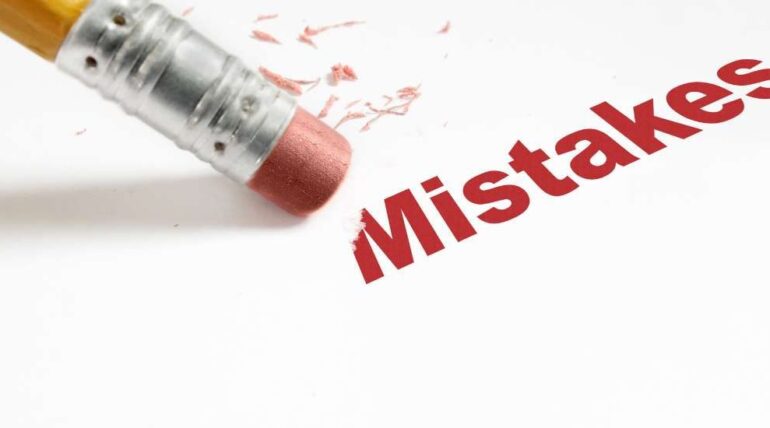
November 5, 2024
Medical Application Typing is an essential stage in the process of receiving different kinds of licenses related to medicine, particularly when it comes to applications for medical residency, work in the healthcare industry, or visas for treatment abroad. Because even a small error can result in delays or rejections, this careful process demands close attention to detail. Knowing how to clear up repeated mistakes can save time, anger, and money, whether you’re handling medical records or looking for visa services for medical purposes. The most common errors made when typing medical applications will be examined in this article, along with advice on how to avoid them.
Why Accurate Medical Application Typing is Essential
Completing medical applications opens doors to important healthcare services, jobs, and educational opportunities; it’s not simply paperwork. Whether the application is for a training program, work, or medical visa, accuracy guarantees a quick and easy processing process. This guide will show you how typing medical applications can make or break the process and what you can do to make sure every application you submit is flawless.
Top 10 Common Mistakes in Medical Application Typing
Professionals and applicants can steer clear of common errors in medical application typing by being aware of them. Let’s examine some of the most frequent mistakes people make.
Incorrect Personal Information
Surprisingly, people frequently make mistakes with basic personal information like their name, date of birth, or contact information. Since even small inconsistencies may result in the application being questioned or highlighted for further verification, this can lead to issues and delays.
- How to Avoid: Verify personal information twice before applying. Using formal identification documents for verification can help prevent easy yet expensive errors.
Misinterpretation of Medical Terminology
Misunderstandings can result in inaccurate or misleading information, and many applications call for precise medical terminology. Errors resulting from misinterpretation could affect the application’s accuracy, particularly for people who are not familiar with medical terminology.
- How to Avoid: To make sure that these terms are understood and used appropriately, it is preferable to speak with a healthcare provider or use reliable medical resources.
Errors in Medical History Details
Incomplete or incorrect medical history is one of the most serious mistakes in Medical Application Typing. Leaving out relevant health conditions or medication details can lead to the rejection of applications, especially for visa services where health screenings are mandatory.
- How to Avoid: Keep your medical records close at hand and make sure they have all the pertinent information. If you are unclear about any particular data, it is also helpful to go over previous medical records with your physician.
Inaccurate Contact Information of Medical Practitioners
Applications frequently ask for the contact information of medical professionals or places that have treated patients. Authorities may find it challenging to confirm details if contact information is inaccurate or out-of-date, which could delay processing.
- How to Avoid: Before including medical professionals or facilities on your application, confirm their contact details.
Failure to Follow Formatting Requirements
Certain formatting criteria are frequently used for applications from various medical programs and visa services. Misunderstandings or rejections may result from using the incorrect format, particularly if some details are unclear or out of order.
- How to Avoid: Examine and adhere to the formatting specifications listed in the application instructions. By following these recommendations, readability will be enhanced, and reviewers will comprehend the material more quickly.
Submitting Incomplete Forms
One of the most frequent causes of application rejections is missing fields or sections. Every field is important when typing a Medical Application Typing, and omitting even one could result in an incomplete application.
- How to Avoid: Before submitting, carefully review the application. Even though some fields might not appear immediately essential, make sure you fill them out using a checklist if you can.
Providing Unsigned or Unauthenticated Documents
Many applications, particularly those for visa services, require certified or validated documents. The application may be considered invalid if the forms are not signed or if the required stamps and certifications are not included.
- How to Avoid: Make sure that every document has the necessary signatures, stamps, and authentications. Verify the certification standards one more time to avoid last-minute issues.
Confusing Dates and Timeline Requirements
Precise dates pertaining to past medical treatments, length of illness, or anticipated recovery period are frequently needed for Medical Application Typing. Inaccurate dates can cause issues and possibly result in the application being marked for additional examination.
- How to Avoid: Verify that all of the dates on the application are consistent with your official records. Cross-referencing dates helps to guarantee correctness.
Using Non-Standard Abbreviations
Medical terminology abbreviations can be confusing. Some common abbreviations, such as “BP” for blood pressure, are well known, but others could be misconstrued. The application reviewers may become confused if you employ strange abbreviations.
- How to Avoid: Adhere to widely used acronyms or provide complete definitions for terms. For clarity, choose to type out the terms if you’re unclear about the abbreviations.
Not Including Supporting Documents
Frequently, the application must be submitted with supporting documentation, such as prescriptions, treatment summaries, or medical records. Applications that don’t contain them may be rejected or incomplete.
- How to Avoid: Make sure all of the documents you attach match the information in your application. Make sure the documents are up to date and fulfill the particular specifications listed in the application instructions.
Best Practices to Ensure Accuracy in Medical Application Typing
Here are some suggested practices for effective medical application typing that go beyond avoiding typical mistakes.
Proofread Thoroughly
The simplest method to avoid errors is to proofread your application thoroughly before sending it in. Several readings of the application can help identify small mistakes that could have gone overlooked at first.
Use Professional Typing Services
If you’re not confident you can complete the application on your own, use expert medical application typing services. Numerous visa service companies in Dubai provide specialist assistance for medical application procedures to guarantee accuracy and adherence to regulations.
Seek Guidance from Healthcare Providers
Physicians and other healthcare professionals can be great resources when completing medical forms. Their knowledge can illuminate particular passages, particularly those that call for a thorough medical background and terminology.
Rely on Online Resources and Templates
Some web resources offer templates and instructions for particular application types. These tools might help expedite the procedure and offer guidance on how to arrange and structure your application.
Stay Updated on Application Requirements
Guidelines for medical applications and visa requirements are subject to change. Keep up with the most recent regulations, particularly if you’re applying through a visa agency. Modest changes to the requirements could affect how you complete your application.
Importance of Professional Medical Application Typing Services
Expert medical application typing services can guarantee that your application is error-free and satisfies all requirements. These services offer proficiency in handling intricate medical jargon and comprehending the particular needs of various medical applications.
How Medical Application Typing Services Can Help
- Avoid Common Errors: Professionals are taught to recognize and steer clear of common errors.
- Saves Time: By hiring a typing service, you may concentrate on other important duties while professionals take care of the minutiae.
- Accurate Documentation: Skilled typists guarantee that all necessary documents are correctly linked and referenced.
- Meeting Deadlines: Expert services can assist you in meeting tight deadlines, particularly for applications pertaining to urgent visas.
Use in Medical Application Typing is essential for many visa, residence, and healthcare applications. The processing and approval of your application can be greatly impacted by avoiding typical errors and putting best practices into effect. Accuracy and attention to detail are crucial whether you’re processing the application yourself or with the help of a professional typing service. Your application will stand out for its completeness and clarity if you follow the instructions in this article, which will eventually speed up and simplify the procedure.
By following these procedures, you can maximize the benefits of any visa services or medical permissions you’re looking for, avoid expensive mistakes, and ensure that your medical information is correct. Submitting an appropriate application may be the first step to obtaining essential medical care, educational opportunities, and jobs in the healthcare industry.



